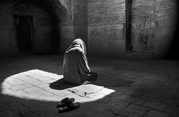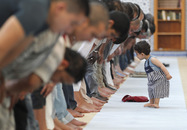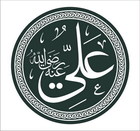
Alhamdulillah! I hope that you are in good health and spirits for the weekend. Following yesterday’s entry, I wish to share with you some tips to get you preparing for Ramadhan.
1. Fasting
Know that fasting is not just about abstaining from food and drinks. There are vast wisdoms of fasting, including disciplining the physical body. For those who have been following my course on “Reconnecting With Ramadhan,” they have been guided to begin preparing the physical body by gradual fasting since three weeks ago, so that the body does not get a shock from sudden deprivation of food and drinks. But you can also do this by doing a trial-run of fasting this Monday, so that your body can get accustom to a whole month of continuous fasting. Don’t think about it. Just Do It!
2. Pledge-Book
Invest yourself with a small notebook. Use it to write down your objectives for this Ramadhan, and refer to it daily to mark your progress towards achieving your objective. Some of the objectives I suggested to my students are for example: to fast 30-days complete this year, to finish reading the Qur’an this month, to join 1-2 charity drives to help the needy etc. You can never achieve a goal if you don’t have it in the first place. Writing it down is like making a pledge. Commitment to achieving it will follow.
3. The Qur’an
Ramadhan is all about the Qur’an. We fast to purify ourselves as we engage rigorously reading and communicating with the Qur’an throughout the whole month of Ramadhan. There must be a plan devised to complete reading the Qur’an by the end of Ramadhan. For example, read one juzu’ before or after Fajr. Make it become a habit, so that you can be consistent. DO NOT have any ‘cheat-days’ – this is not a gym!
In addition, I encourage you to plan to memorize one or two surahs every Ramadhan. Choose one decent length and a short one, so you don’t get too discouraged. For example, this Ramadhan try to memorize Surah An-Naba’ and Surah Ad-Duha. If you continuously do this every Ramadhan, insyaAllah, you will be able to memorize the Qur’an by the time you meet your Lord.
4. Night Vigil
Start performing night vigils from the beginning of Ramadhan, instead of only the last ten nights. You don’t have to do many, but one or two sets every day consistently – that is more meritorious in Islam. You don’t have to get up so early since you do it daily. For example, get up at 5:10am – shower and perform one or two sets of tahajjud, one set of witr, and you will be done by Fajr at 5:35am. Do it everyday!
5. Get A Buddy
If you are married, this is the best way to improve your relationship. If you are not, you can get your best friend or your siblings to be your Ramadhan buddy. Check on each other daily. Ask: have you read one juzu’ of the Qur’an today? Do you want me to wake you up for qiyam this morning? This is because there will be difficult, lazy or tired days ahead. Your buddy will make sure you don’t give up, and vice-versa.
I hope these tips can assist you in some ways to get you going. May Allah s.w.t. assist you, and assist me, to make things easy for all of us. Amin ya Rabb!
Love,
The Alchemist.









 RSS Feed
RSS Feed
